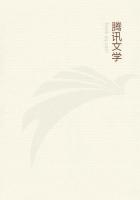Only two days elapsed, however, before we again saw an immense school of sperm whales, and each ship succeeded in securing one.
We made no attempt to get more this time, nor do I think either of the others did; at any rate, one each was the result of the day's work.They were, as usual, of huge size and apparently very fat.At the time we secured our fish alongside, a fresh north-westerly wind was blowing, the weather being clear and beautiful as heart could wish.But instead of commencing at once to cut-in, Captain Count gave orders to pile on all sail and keep her away up the Straits.He was evidently determined to take no more chances, but, whenever opportunity offered, to follow the example set by the wily old skipper of the CHANCE.The other ships both started to cut-in at once, tempted, doubtless, by the settled appearance of the weather, and also perhaps from their hardly concealed dislike of going into port.We bowled along at a fine rate, towing our prize, that plunged and rolled by our side in eccentric style, almost as if still alive.Along about midnight we reached Saddle Point, where there was some shelter from the sea which rolled up the wide open strait, and there we anchored.
Leaving me and a couple of Kanakas on watch, the captain, and all hands besides, went below for a little sleep.My instructions were to call the captain if the weather got at all ugly-looking, so that we might run in to Port William at once, but he did not wish to do so if our present position proved sufficiently sheltered.He had not been below an hour before there was a change for the worse.That greasy, filmy haze was again drawn over the clear blue of the sky, and the light scud began to fly overhead at an alarmingly rapid rate.So at four bells I called him again.He came on deck at once, and after one look round ordered the hands up to man the windlass.By eight bells (four a.m.) we were rounding the frowning rocks at the entrance of Port William, and threading our way between the closely-set, kelp-hidden dangers as if it were broadest, dearest daylight.At 4.30we let go the anchor again, and all hands, except the regular "anchor-watch," bolted below to their bunks again like so many rabbits.
It was very comfortable, cutting-in a sperm whale in harbour, after the dire difficulty of performing the same operation in a seaway.And, although it may seem strange, this was the first occasion that voyage that I had had a really good opportunity of closely studying the whale's anatomy.Consequently the work was exceedingly interesting, and, in spite of the labour involved, Iwas almost sorry when the job was done.Under the present favourable circumstances we were ready to cut the carcass adrift shortly after midday, the head, of course, having been taken off first.Just after we started to cut-in a boat appeared alongside with six Maories and half-breeds on board.Their leader came up and civilly asked the skipper whether he intended doing anything with the carcass.Upon being promptly answered in the negative, he said that he and his companions proposed hooking on to the great mass when we cut it adrift, towing it ashore, and getting out of it what oil we had been unable to extract, which at sea is always lost to the ship.He also suggested that he would be prepared to take reasonable terms for such oil, which we should be able to mingle with ours to our advantage.An arrangement was speedily arrived at to give him L20 per tun for whatever oil he made.They parted on the best of terms with each other, and as soon as we cut the carcass loose the Maories made fast, to it, speedily beaching it in a convenient spot near where they had previously erected a most primitive try-works.
That afternoon, after the head was inboard, the skipper thought he would go ashore and see how they were getting on.I was so fortunate as to be able to accompany him.When we arrived at the spot, we found them working as I have never seen men work, except perhaps the small riggers that at home take a job--three or four of them--to bend or unbend a big ship's sails for a lump sum to be paid when the work is done.They attacked the carcass furiously, as if they had a personal enmity against it, chopping through the massive bones and rending off huge lumps of the flesh with marvellous speed.They had already laid open the enormous cavity of the abdomen, and were stripping the interminable intestines of their rich coating of fat.In the maw there were, besides a large quantity of dismembered squid of great size, a number of fish, such as rock-cod, barracouta, schnapper, and the like, whose presence there was a revelation to me.How in the name of wonder so huge and unwieldy a creature as the cachalot could manage to catch those nimble members of the finny tribe, Icould not for the life of me divine! Unless--and after much cogitation it was the only feasible explanation that I could see --as the cachalot swims about with his lower jaw hanging down in its normal position, and his huge gullet gaping like some submarine cavern, the fish unwittingly glide down it, to find egress impossible.This may or may not be the case; but I, at any rate, can find no more reasonable theory, for it is manifestly absurd to suppose the whale capable of CATCHING fish in the ordinary sense, indicating pursuit.
Every part of the animal yielded oil.Even the bones, broken up into pieces capable of entering the pot, were boiled; and by the time we had finished our trying-out, the result of the Maories'
labour was ready for us.Less than a week had sufficed to yield them a net sum of six guineas each, even at the very low rate for which they sold us the oil.Except that it was a little darker in colour, a defect that would disappear when mixed with our store, there was no difference between the products that could be readily detected.And at the price we paid for it, there was a clear profit of cent.per cent., even had we kept it separate and sold it for what it was.But I suppose it was worth the Maories'

